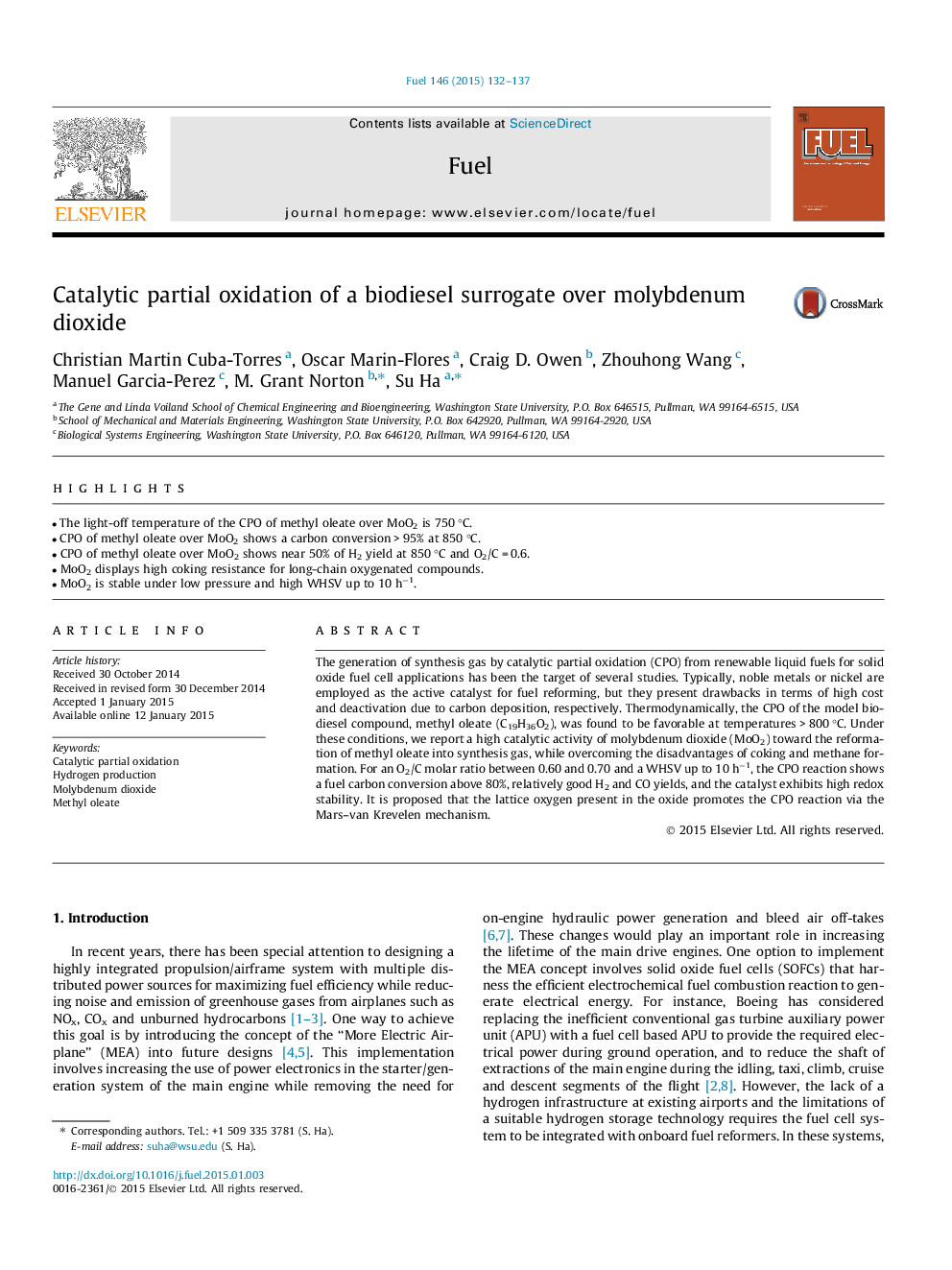| Article ID | Journal | Published Year | Pages | File Type |
|---|---|---|---|---|
| 205988 | Fuel | 2015 | 6 Pages |
•The light-off temperature of the CPO of methyl oleate over MoO2 is 750 °C.•CPO of methyl oleate over MoO2 shows a carbon conversion > 95% at 850 °C.•CPO of methyl oleate over MoO2 shows near 50% of H2 yield at 850 °C and O2/C = 0.6.•MoO2 displays high coking resistance for long-chain oxygenated compounds.•MoO2 is stable under low pressure and high WHSV up to 10 h−1.
The generation of synthesis gas by catalytic partial oxidation (CPO) from renewable liquid fuels for solid oxide fuel cell applications has been the target of several studies. Typically, noble metals or nickel are employed as the active catalyst for fuel reforming, but they present drawbacks in terms of high cost and deactivation due to carbon deposition, respectively. Thermodynamically, the CPO of the model biodiesel compound, methyl oleate (C19H36O2), was found to be favorable at temperatures > 800 °C. Under these conditions, we report a high catalytic activity of molybdenum dioxide (MoO2) toward the reformation of methyl oleate into synthesis gas, while overcoming the disadvantages of coking and methane formation. For an O2/C molar ratio between 0.60 and 0.70 and a WHSV up to 10 h−1, the CPO reaction shows a fuel carbon conversion above 80%, relatively good H2 and CO yields, and the catalyst exhibits high redox stability. It is proposed that the lattice oxygen present in the oxide promotes the CPO reaction via the Mars–van Krevelen mechanism.
